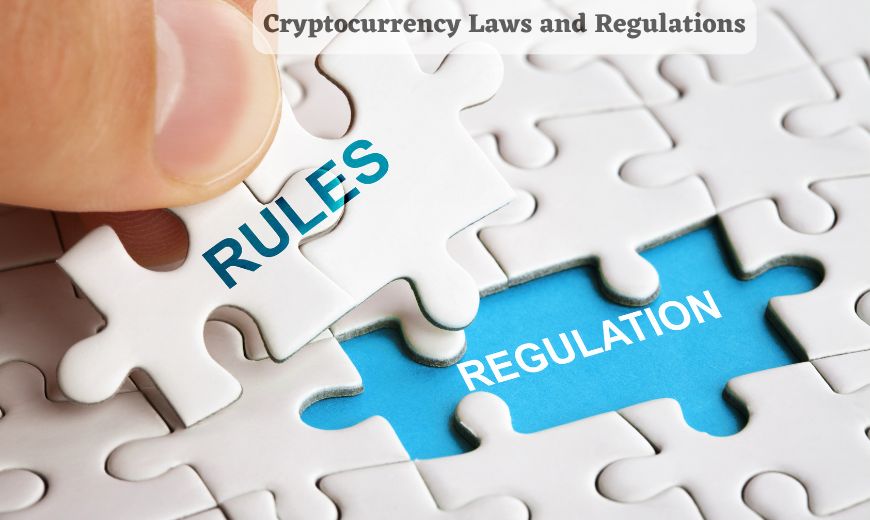
Hey, crypto enthusiasts. ‘The Blockchainist’ welcomes you to another detailed blog post. Today, we’ll discuss cryptocurrency laws and regulations in France in detail. If you are aware of our two-part blog series titled ‘Cryptocurrency Laws and Regulations in All European Countries,’ you might know we promised to dedicate a detailed blog post on Cryptocurrency Laws and Regulations in France.’ And here we are today – Fulfilling our promise.
So, let’s jump straight to this blog post without further ado.
Introduction
France is one of the few European nations that has been pro-crypto since the arrival of this technology. Both the French government and citizens are majorly in support of blockchain-based technologies. As of now, over 900 Fintech companies are active in France. Therefore, this acts as a testament to France’s rising influence in the digital finance world.
According to Statista, revenue from the French cryptocurrency market is expected to cross $1,070.0 million by 2024. Moreover, revenue is projected to witness an annual growth rate of 7.87% by 2028.
France took a bold step to strengthen its digital economy with the enforcement of the PACTE law in 2019. As an acronym for ‘Action Plan for Business Growth and Transformation,’ PACTE revolutionized the digital assets economy of France. The law was promulgated on May 22, 2019. PACTE Law also introduced the first comprehensive regulatory framework for ICOs and DASPs (Digital Asset Service Providers Who Act as Intermediaries). Today, over 95 companies are registered under this law as DASPs.
(We’ll discuss the PACTE law and its comprehensive regulatory framework in detail in the next section. But before delving into this, Let’s look at France’s stand on Blockchain in the pre-2019 era.)
France’s Stand on Blockchain in the Pre-2019 Era (Before the Enforcement of PACTE Law)
It was in 2011 when Tracfin (a leading Fench financial intelligence unit) mentioned Bitcoin for the first time in its annual report. Years after the first France-based cryptocurrency regulation came into effect in 2014. ACPR (Autorité de Contrôle Prudentiel et de Résolution or Prudential Supervision and Resolution Authority) was made responsible for looking after crypto companies and activities. Moreover, ACPR also said,
‘Any entities who are receiving legal currency in the form of crypto or any digital assets are required to get an official license to do so.’
Eventually, the French government included all such entities (including digital businesses, cryptocurrency trading platforms, brokers & anyone who is trading cryptocurrencies) in Article 2 of Ordinance No. 2016-1635. In the same year, 2016, the French government also promised to debut an official legal framework for the blockchain industry soon.
Witnessing the popularity of ICOs (Initial Coin Offerings) among SMEs (Small and Medium-Sized Enterprises), a legal framework was enforced in Act No. 2019-486 on May 22, 2019. This legal framework was part of PACTE Law.
(PACTE Law aims to offer an action plan and strategy to strengthen the Fintech economy of France.)
A Deep Dive into the Official Legal Cryptocurrency Framework in France
With the adoption of the PACTE Act, France became one of the major European crypto hubs. The PACTE Act established an organized and clear regulatory framework for ICOs and DASPs. So, let’s look at the definition of Digital Assets (as per PACTE Law).
The Definition of Digital Assets:
“An intangible asset in digital form, representing one or more rights, that can be issued, registered, stored, or transferred via a shared electronic recording system, enabling the identification of the asset’s owner, either directly or indirectly.”
The definition in the French language includes the mention of Articles L. 552-2, Article L. 211-1, and Article L. 223-1.
Read the next section of this blog, ‘Cryptocurrency Laws and Regulations in France,’, to know detailed information about the legal crypto framework.
Cryptocurrency Laws and Regulations in France
1. Optional Visa for Token Issuers
All token issuers are recommended to acquire an optional visa to sell their tokens to the French public. The optional visa (also known as ICO Visa) is granted by AMF (Autorité des Marchés Financiers)
(AMF is the official regulatory body for financial institutions and other bodies. It also launched its well-received UNICORN program in 2017, which aims to support blockchain projects)
Clearing Your Doubt on Optional Visa
An ICO visa is known as an ‘Optional Visa’ as token issuers are not bound to apply for it at any cost. With or without attaining this visa, they can carry out their services in France.
Eligibility and Requirements for the Visa
Eligibility for the Visa
Token issuers must meet specific conditions, such as the legal definition of tokens, being established or registered in France, selling to 150+ potential subscribers, and applying for the visa before issuance.
Underlying Requirements
White Paper Content: The white paper must include detailed information such as the presentation of the issuer, project details, technical and non-technical features of the ICO, associated rights, risk factors, AML-CFT arrangements, applicable law, and a certificate of conformity.
Benefits of the Optional Visa
Now, you may wonder, if this visa is optional, why should token issuers apply for it?
Well, attaining this visa is essential as it offers a wide range of benefits.
Banking Services Access: Issuers with a visa cannot be refused access to banking services by credit institutions, enhancing their operational capabilities.
Competitive Advantage: The visa can provide a competitive edge by signalling credibility to potential token buyers.
Direct Marketing: ICOs approved by the AMF can be marketed directly to the French public.
Post-Visa Requirements
Publication: The white paper must be published online within two days of the visa grant and remain valid for six months.
Underwriter Information: Issuers must provide underwriters with detailed information about assets collected, token issuance, and annual updates on asset use.
2. Regulation of Digital Asset Service Providers (DASPs)
The second major component of France’s cryptocurrency framework is the regulation of digital asset service providers (DASPs). This regulation is aimed at overseeing the secondary market and peripheral services related to digital assets. The French Monetary and Financial Code outlines nine types of “services on digital assets,” including custody, buying, selling, exchanging crypto-assets, operating trading venues, and providing investment advice.
Mandatory Registration
Crypto-Custodians and Crypto-Fiat Providers: These providers must register with the AMF before offering their services.
Registration Process: The AMF assesses compliance with requirements such as AML-CFT measures and the competence of managers.
Rights and Obligations of Registered DASPs
Rights of Registered DASPs
Banking Services: Registered DASPs should not be refused access to banking services. Credit institutions must justify refusals to the AMF and the ACPR.
Regulatory Oversight: The AMF ensures DASPs comply with AML-CFT regulations and other supervisory measures.
Registration Procedure
Process: There are distinct procedures for crypto-custodians, crypto-fiat service providers, and other DASPs. Registration involves submitting a complete file to the AMF, which includes compliance with AMLD5 and other regulatory requirements.
Penalties for Non-Compliance
Infringement Penalties: Penalties for non-compliance include imprisonment, fines, and possible prohibition from executive positions.
Sanctions: Furthermore, specific sanctions apply for failing to register, providing incomplete information, or not implementing required AML-KYC measures.
3. Optional License for DASPs
In addition to mandatory registration, DASPs can opt to apply for an optional license from the AMF. This license, while not compulsory, can offer several benefits, including enhanced credibility and potentially easier access to banking services.
Eligibility: Any DASP providing services defined by the law and established in France can apply for the license.
Application Conditions
Common Rules: DASPs must meet general requirements such as financial stability, internal control systems, and clear client communication.
Specific Rules: Depending on the services offered, DASPs must also comply with specific conditions related to custody, trading venues, portfolio management, and other activities.
Conclusion
France’s legal framework for cryptocurrencies, characterized by the optional ICO visa and stringent regulations for DASPs, represents a balanced approach to fostering innovation while ensuring market integrity and investor protection. Thus, by providing clear guidelines and oversight mechanisms, France aims to position itself as a leading hub for digital asset activities, promoting a secure and transparent environment for blockchain and cryptocurrency projects. With this, we would like to wrap up this blog post. Thanks for reading this comprehensive blog post. Also, do a favor by checking out more Blockchain-related content in our blog post. As your premier Blockchain-related guide, ‘The Blockchainist’ aims to clear up all your doubts.






